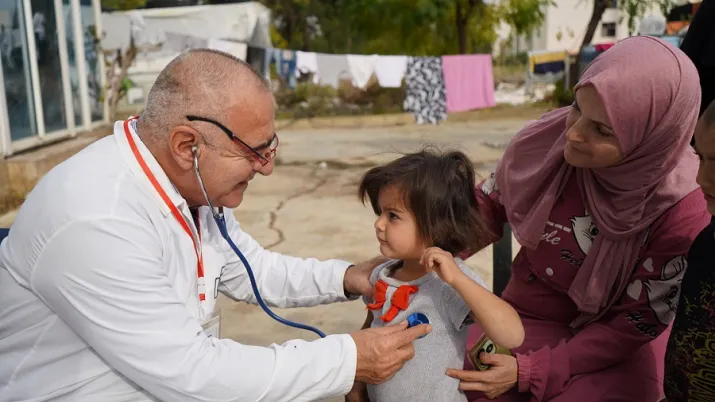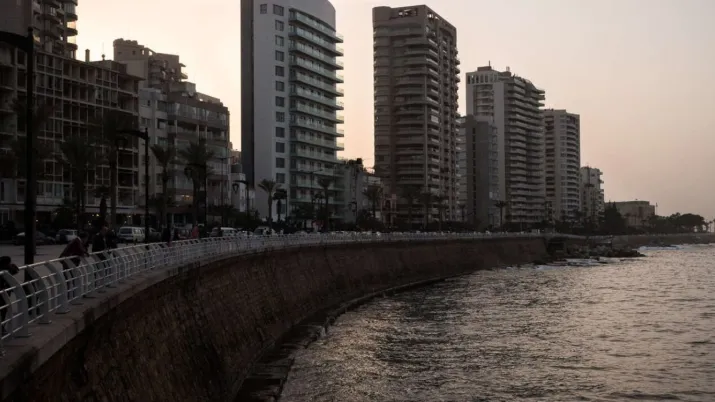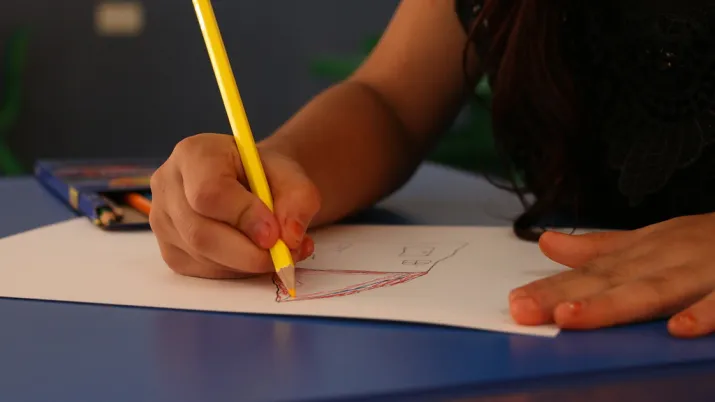Share the page
Strengthening Lebanon’s health sector during the crisis
Published on
High-level ceremony at Bazourieh PHCC highlights continued support to primary healthcare across Lebanon
Bazourieh, Lebanon – July 23, 2025 – As Lebanon continues to grapple with compounding political, economic and social crises, the need for resilient and sustainable healthcare solutions remains critical. On Tuesday, July 23, Agence Française de Développement (AFD) and Première Urgence Internationale (PUI) hosted a high-level ceremony at the Amel Primary Health Care Center (PHCC) in Bazourieh to mark the official launch and signing of the second phase of the SAQIRH project. The event brought together key stakeholders including the Minister of Public Health Dr. Rakan Nasreddine, the French Ambassador to Lebanon H.E. Mr. Hervé Magro, other ministers, Members of Parliament, representatives of the Agence Française de Développement (AFD), as well as donors and partners.
The ceremony underscored Lebanon’s ongoing health sector challenges and celebrated collective efforts to move forward, highlighting the vital role of the SAQIRH II project in maintaining access to essential healthcare services for vulnerable communities throughout the country.
Funded by France through the Agence Française de Développement (AFD) and implemented by Première Urgence Internationale (PUI), AMEL Association International, and Médecins du Monde (MdM), SAQIRH II will continue to support 19 accredited Primary Health Care Centers across Lebanon. These centers are located in the Bekaa, North Lebanon, Akkar, Beirut, Mount Lebanon, and the South.
Speeches delivered by the officials and partners emphasized the importance of continued collaboration, and the value of building on the achievements and lessons learned from the first phase of the project. They reaffirmed their shared commitment to strengthening the national primary healthcare network and to laying the foundation for a more sustainable, equitable, and resilient health system.
At the ceremony, Minister of Public Health Dr. Rakan Nasreddine stated: "The launch of the SAQIRH II project highlights the importance of shared responsibility and collective investment in health in Lebanon — by the government, civil society, and the international community. Thanks to the support of partners like France, and the tireless efforts of civil society organizations such as Amel Association, we are expanding our primary healthcare services to ensure that no one is left behind, regardless of income, nationality, or background."
The Ambassador of France to Lebanon, H.E. Mr. Hervé Magro, reaffirmed France’s lasting commitment, stating: “The Bazourieh Primary Health Care Center is a powerful symbol – a symbol of continuity, resilience, and solidarity. France is proud to support, alongside its partners, the restoration of such a vital place of life and care.”
Charlotte Baudoin, Middle East Regional Manager at Première Urgence Internationale, added: “This moment is about more than just launching a new program – it is a reaffirmation of our shared commitment to ensuring that every person in Lebanon, regardless of their background or situation, can access quality healthcare when they need it most.”
Since 2020, the SAQIRH program has enabled the delivery of more than one million primary healthcare services, ensuring continued access to essential care for hundreds of thousands of beneficiaries, both Lebanese and refugees, despite the country’s prolonged crisis. The second phase aims to sustain this vital support while also enhancing the efficiency and financial sustainability of the system.
Through its second phase, the project will not only continue to provide consultations, medications, and diagnostic services, but will also work to:
- Strengthen accreditation processes for PHCCs,
- Expand training opportunities for healthcare professionals,
- Improve supply chain management to minimize stockouts, and
- Integrate mental health and psychosocial support services into routine primary care.
These efforts reflect a shared vision, notably with the EU cooperation, of building a stronger, more inclusive healthcare system for all communities living in Lebanon.
For more information, please contact:
- PUI: Jirina Kafkova, cons.co@premiere-urgence-lib.org
- AFD: Lara Fahs, fahsl@afd.fr
Projet SAQIRH II : renforcer l’accès à la santé pour l’ensemble des populations au Liban
Projet SAQIRH II : renforcer l’accès à la santé pour l’ensemble des populations au Liban
Ce projet vise à renforcer l’offre de soins de santé primaire dans un contexte de crise prolongée, afin de garantir un accès équitable, abordable et pérenne aux soins essentiels pour l’ensemble de la...

- When ?
- 2025
- Location
- Lebanon, Eurasia and Beyond
- Financing tool
- Fonds Paix et résilience Minka, Subvention
- Financing amount
- 11 millions d'euros €


